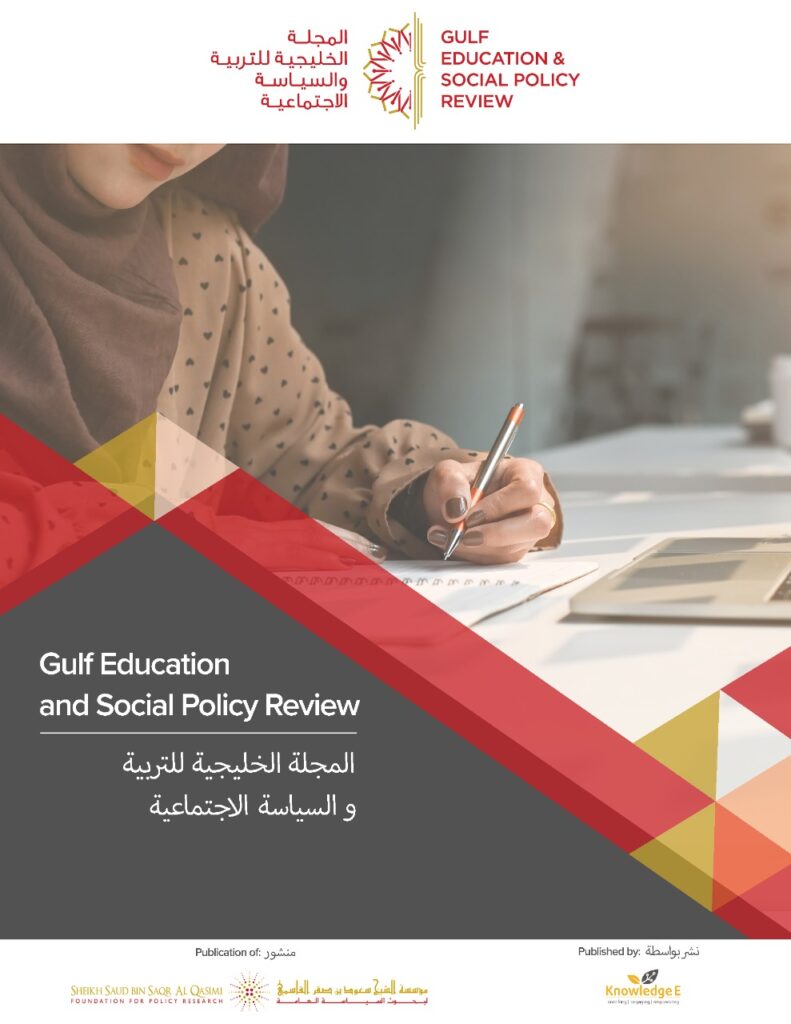
Gulf Education and Social Policy Review
ISSN: 2709-0191
Pioneering research on education and social policy in the Gulf region.
Editorial - Breaking the Silence: Unveiling the Challenges of Women’s Reproductive Health
Published date:Jan 31 2024
Journal Title: Gulf Education and Social Policy Review
Issue title: Gulf Education and Social Policy Review (GESPR): Volume 4, Issue 2
Pages:128 – 143
Authors:
Abstract:
This is an Editorial and does not have an abstract. Please download the PDF or view the article in HTML.
References:
[1] Mousa, M., Al-Jefout, M., Alsafar, H., Becker, C. M., Zondervan, K. T., & Rahmioglu, N. (2021). Impact of endometriosis in women of arab ancestry on: health-related quality of life, work productivity, and diagnostic delay. Frontiers in Global Women’s Health, 2, 708410.
[2] Alomair, N., Alageel, S., Davies, N. & Bailey, J. V. (2022). Sexual and reproductive health knowledge, perceptions and experiences of women in Saudi Arabia: A qualitative study. Ethnicity & Health, 27(6), 1310–1328.
[3] Ahmadi Vostakolaee, M. (2020). A comparative analysis of the attitudes towards menstrual cycle in Middle-Eastern and Western societies. Auckland University of Technology.
[4] Ayanore, M. A., Pavlova, M. & Groot, W. (2015). Unmet reproductive health needs among women in some West African countries: A systematic review of outcome measures and determinants. Reproductive Health, 13, 1–10.
[5] Mohammadi, F., Kohan, S., Mostafavi, F. & Gholami, A. (2016). The stigma of reproductive health services utilization by unmarried women. Iranian Red Crescent Medical Journal, 18(3), e24231.
[6] Parvez, S. M., Sharif Hasan, S., Knibbs, L. D., Jahan, F., Rahman, M., Raqib, R., Islam, N., Aich, N., Moniruzzaman, M., Islam, Z., Fujimura, M., & Sly, P. D. (2022). Ecologicalburden of e-Waste in Bangladesh—An assessment to measure the exposure to ewaste and associated health outcomes: Protocol for a cross-sectional study. JMIR Research Protocols, 11(8), e38201.
[7] Arousell, J., & Carlbom, A. (2016). Culture and religious beliefs in relation to reproductive health. Best Practice & Research Clinical Obstetrics & Gynaecology, 32, 77–87.
[8] Alomair, N., Alageel, S., Davies, N. & Bailey, J. V. (2020). Factors influencing sexual and reproductive health of Muslim women: A systematic review. Reproductive Health, 17(1), 1–15.
[9] Hardee, K., Agarwal, K., Luke, N., Wilson, E., Pendzich, M., Farrell, M., & Cross, H. (1999). Reproductive health policies and programs in eight countries: Progress since Cairo. International Family Planning Perspectives, S2–S9.
[10] Mousa, M., Al-Jefout, M., Alsafar, H., Kirtley, S., Lindgren, C. M., Missmer, S. A., Becker, C. M., Zondervan, K. T., & Rahmioglu, N. (2021). Prevalence of common gynecological conditions in the Middle East: Systematic review and meta-analysis. Frontiers in Reproductive Health, 3, 661360.
[11] Moghadam, V. M. (2003). Modernizing women: Gender and social change in the Middle East. Colorado, USA: Lynne Rienner Publishers.